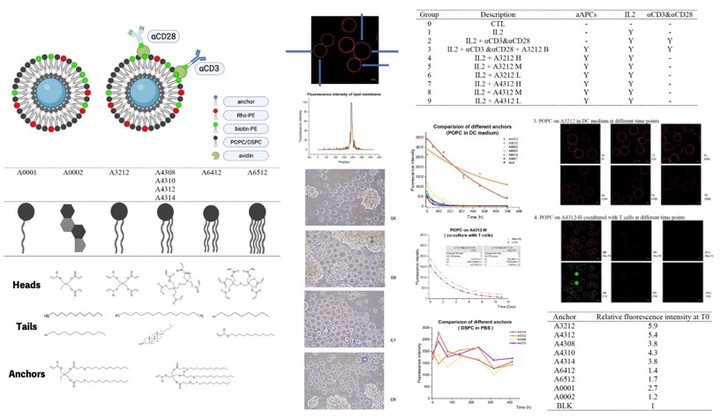Preparation and Stability Testing of Lipid-coated Hydrogel Microparticles

M.Sc. Independent Project
Supervisor: Prof. Ying CHAU
Artificial antigen-presenting cells(aAPCs) can activate and expand T cells in vitro, which have great potential for tumor immunotherapy. Hydrogels have been widely used for medical treatment and drug delivery due to their good biocompatibility.
We prepared a series of artificial antigen-presenting cells based on lipid-coated hydrogel microparticles. Firstly, we designed and synthesized different lipid-like ‘anchors’ for modifying hydrogel microparticles. Next, the stability of the lipid membranes on the surface of hydrogel microparticles were tested. Ultimately, two ‘anchors’ were able to provide a half life of more than 500 hours in DC medium and a half life of about 100 hours when co-cultured with T cells.
- Preparation of hydrogel microparticles with different biomaterials, e.g. dextran, hyaluronic acid
- Synthesis of ‘anchors’ with different structures and lengths
- Co-culture of aAPCs with T cells or placing aAPCs in DC medium/PBS solution ·Quantitative analysis of stability and half-life of POPC/DSPC coated hydrogel microparticles by confocal microscopy and Image J.